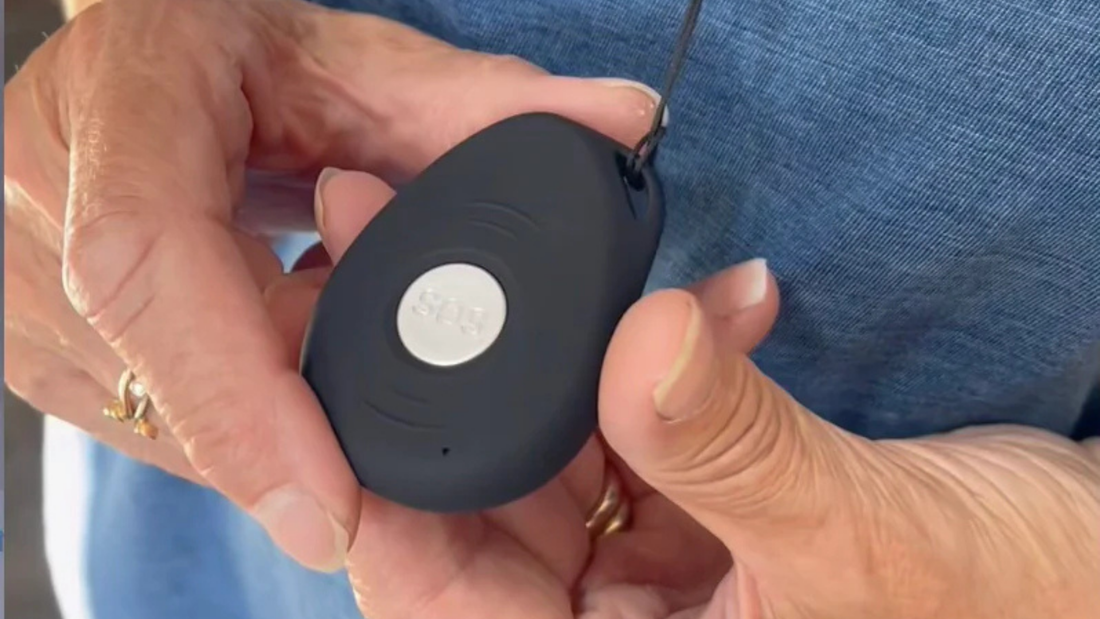
Is Your Personal Alarm Ready for the UK’s Digital Phone Switchover?
Share
From 2025 onwards the UK is phasing out traditional copper landlines in favour of digital telephone lines. While this change will improve call quality and reliability, it also raises an important question for anyone who relies on a personal alarm: will your device still work? Around two million people depend on telecare alarms for help in emergencies(gov.co.uk) A government-backed campaign launched in June 2025 urges these users to contact their telecom providers to ensure their alarms remain operational during the switchover (gov.co.uk). Here’s what you need to know to keep your loved ones safe.
What is the digital phone switchover?
The digital switchover involves replacing the UK’s ageing copper phone network with modern digital landlines. Copper networks are reaching the end of their service life and parts are becoming hard to find, so telecom companies are moving customers to digital lines. This nationwide upgrade is expected to be completed by January 2027. As part of the transition, telecom providers will send engineers to households to carry out the switchover and personally test telecare alarms, ensuring they continue to work. Providers will also offer vulnerable customers a free battery backup device so their landline remains functional during power cuts.
Why the switchover matters for personal alarms
Many personal alarms and telecare devices still connect to monitoring centres via analogue phone lines. When a landline switches to digital, these analogue devices can stop working. Guidance from care experts notes that analogue telecare alarms may not work properly with an internet connection or digital landline, so consider buying a digital alarm if you’re unsure. The government’s campaign stresses that people who rely on telecare alarms should contact their providers now so they can offer support during the migration. If you or a loved one uses an analogue alarm, it’s vital to check its compatibility and plan(NHS).
Analogue vs digital alarms
- Analogue alarms use a standard phone line to connect to a monitoring service. They are at risk of failure once the line is upgraded to digital.
- Digital alarms use built‑in mobile connections to communicate over the mobile network. They do not rely on a telephone line and are therefore unaffected by the switchover.
How to check if your alarm is digital‑ready
- Check the user guide or packaging. Look for terms like “digital,” “mobile connectivity” or “roaming.” If your device plugs into a phone socket, it’s likely analogue.
- Inspect the alarm unit. A status light or label indicating “digital” or “mobile network” often means it has its own connection.
- Test the device. Unplug your landline and trigger the alarm. If it still raises an alert via the monitoring centre, it’s digital.
- Contact your provider or speak with Protect Alert. We can confirm whether your device will work after the switchover and help arrange an engineer visit to test it gov.uk
- Upgrade your device. If your alarm isn’t compatible, consider upgrading to a digital personal alarm through us to ensure uninterrupted protection.
Steps to prepare for the switchover
- Don’t wait until the switch‑off date. We can help coordinate the switchover, explain when your area will be migrated and outline the support available.
- Request an engineer visit. Engineers will visit your home, carry out the switchover and test your alarm to ensure it functions correctly on the new line.
- Use battery back‑up devices. Landline providers will supply battery back‑ups for vulnerable customers, keeping the phone line powered during outages.
- Upgrade to a digital alarm. A digital personal alarm doesn’t depend on the landline, so it will continue to work wherever there is mobile coverage. We can advise on the best option for your situation.
- Notify family and carers. Let your support network know about the switchover and any changes to your alarm system so everyone understands how to respond in an emergency.
Benefits of digital personal alarms
Digital personal alarms offer several advantages over traditional landline‑based devices:
- Uninterrupted service: Because they connect over the mobile network, digital alarms continue to work even if the landline fails or power cuts occur.
- Nationwide coverage: They automatically connect to the strongest available mobile network, giving near‑universal coverage across the UK.
- Automatic fall detection: Many digital alarms include sensors that detect hard falls and send an alert if the wearer cannot press the button.
- GPS location tracking: Family members or carers can see the wearer’s location in real time and respond quickly if help is needed.
- Discreet and waterproof design: Wear the alarm as a pendant, wristband or belt clip and keep it on in the shower or garden.
- Long battery life: Modern digital alarms offer days of power and send reminders when charging is needed.
Protect Alert offers a fully digital personal alarm with 24/7 monitoring, fall detection and GPS. It arrives pre‑configured with your emergency contacts, so it works right out of the box. Because it relies on its own mobile connection rather than a landline, it is immune to the digital switchover. To discuss upgrade options or find the right alarm for your situation. Our team can walk you through the process and ensure your loved one stays safe during the transition.
Final thoughts
The digital phone switchover is well underway. While analogue landlines are being retired because they are unreliable, this change can cause problems for telecare alarms that depend on them. By understanding whether your alarm is digital‑ready, taking steps to prepare, and upgrading if necessary, you can safeguard continuous support for yourself or your loved one. Don’t wait until the copper wires go silent – act now to ensure your personal alarm will still keep you connected when you need it most.